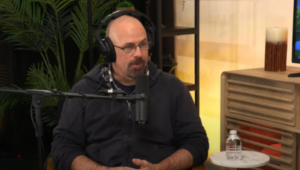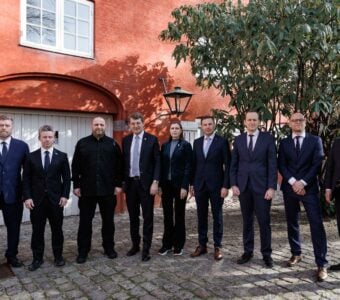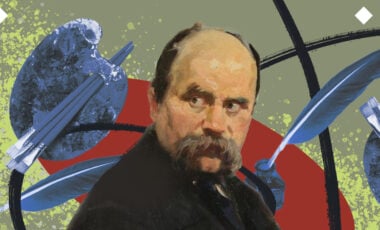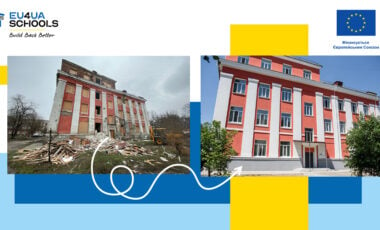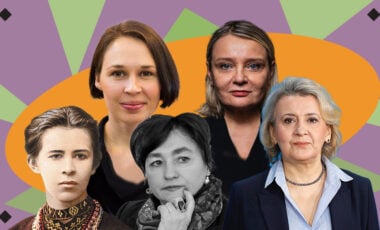Global Peace Summit key statements: peace in Ukraine and messages for Russia

Фото: Офіс Президента
The first Global Peace Summit on Ukraine ended in Bürgenstock, Switzerland. The participants adopted a joint communique and made a number of statements.
Rubryka reports this with reference to the President's Office and RBC-Ukraine.
The final document was supported by 80 countries participating in the summit and four international organizations.
Among those who did not sign the final communique are Saudi Arabia, India, Thailand, Mexico, UAE, and South Africa. Armenia and representatives of Brazil and the Vatican abstained.
The text is about a constructive exchange of different opinions on achieving a just peace. It emphasizes adherence to the UN Charter and the need to refrain from using force against the territorial integrity or political independence of any state, including Ukraine, within internationally recognized borders.
A general vision was agreed on three important aspects:
- any use of nuclear energy and nuclear installations must be safe. Ukrainian nuclear power plants, particularly the Zaporizhzhia NPP, must operate under Ukraine's full control and under the IAEA's supervision. Threats and the use of nuclear weapons against Ukraine are unacceptable;
- safe commercial shipping and access to the Black and Azov Seas seaports are critical. Attacks on merchant ships and civilian ports are unacceptable. Ukrainian agricultural products should be freely supplied to third countries;
- all prisoners of war should be released through a full exchange. All deported and illegally displaced Ukrainian children and the rest of the illegally detained civilians must be returned to Ukraine.
"We believe that reaching peace requires the involvement of and dialogue between all parties. We, therefore, decided to undertake concrete steps in the future in the above-mentioned areas with further engagement of the representatives of all parties," the communiqué reads.
The summit participants also agreed that the UN Charter, with its principles of respect for territorial integrity and sovereignty, will be the basis for achieving peace in Ukraine.
Leaders' statements
At the final briefing, Swiss President Viola Amherd said that it was the first time peace was discussed at such a high level at the summit. According to her, a general position has been agreed upon, which will become a starting point for joint movement forward.
"Now, this starting position must be used. A just and sustainable peace in Ukraine is of fundamental importance," she added.
As Ukraine's President Volodymyr Zelensky noted, the summit participants together "took the first steps towards peace." The Communiqué fully reflects expectations and intentions and remains open for signature by countries that respect the UN Charter.
Technical work will now continue at the level of advisers and ministers in the format of special meetings on specific ideas and proposals. Previous agreements have been reached with France, the Czech Republic, Turkey, Saudi Arabia, the USA, and several other countries. These countries will host and chair technical groups.
He also told when the second peace summit will take place.
"The work should last months, not years. When the action plan for peace is ready, and every step is worked out, the way will be opened to the holding of the second peace summit, and therefore to the end of the war," Zelensky added that there are already countries interested in holding the summit.
Chilean President Gabriel Boric expressed hope that "very soon" Moscow and Kyiv will start a peaceful dialogue, but only if Ukraine preserves its territorial integrity. The head of the European Commission, Ursula von der Leyen, emphasized that peace will not be achieved in one step.
She also noted that Putin is not determined to end the war and insists on the surrender of territories and the disarmament of Ukraine. The European Union, for its part, allocates billions of euros in aid and recently agreed to the transfer of revenues from the frozen assets of the Russian Federation. European countries will not leave Ukraine face-to-face with the aggressor.
"In the end, Ukraine will determine the terms of a just peace… I call on Russia to hear the message of the world community, respect the territorial integrity of Ukraine, end imperialist violence, and return the children. When Russia says it is ready for peace, it will be time to include it in the peace process. I hope it will happen soon," von der Leyen added.
Canadian Prime Minister Justin Trudeau said that according to preliminary estimates, 20 thousand Ukrainian children have been deported to Russia, which deprives them of their language, culture and identity. He announced that Canada will host a humanitarian group in the coming months. He also called for redoubled efforts to ensure Ukraine's security.
"Ukraine is one of the front lines of the struggle now, and we must all stand together," Trudeau emphasized.
The President of Ghana, Nana Akufo-Addo, called Africa an "accidental victim" of the Russian-Ukrainian war. He also noted that to resolve the conflict, it is necessary to find ways for Russia and China to join the peace process.
Zelensky's statements at the press conference
- On Brazil and China
To the question of what is needed to involve Brazil and China in the peace process, Zelensky answered that all the summit participants emphasized their commitment to Ukraine's independence and territorial integrity.
"As soon as Brazil and China join the principles that united us, we will be happy to hear their opinions. Sometimes, even if they do not coincide with the majority," he said.
China has significant political and economic influence on Russia. China could help Ukraine, but the Chinese side's proposals cannot be perceived through the media. At the same time, Ukraine does not consider China an enemy but wants it to become a friend, and friends help.
"When I said that China is a tool, I meant that Putin did everything to make Chinese representatives work with other countries, cancel their presence at the summit, and join the Sino-Brazilian proposals. I think this is wrong. Each leader can have their own position without breaking the other. All I want is for us to respect each other," Zelensky said.
- On the terms of negotiations with Russia
Currently, Russia is not ready for a just peace. Zelensky commented on Putin's extreme ultimatums and called them another historical mistake.
"It is a very serious mistake of a person who offers Ukraine to withdraw from more of our territories. A person can say anything, even about a frozen conflict, but here, he provoked the whole world and, frankly, scared. This is a big mistake that is useful for us. Behind the scenes (of the summit, – ed.), almost everyone said that with this one message, Putin conveyed to the whole world that everything he had said before about the desire to actually end the war was multiplied by zero," the president said.
Therefore, there will be further technical group meetings where the peace plan will be detailed. The meetings should take place on different continents. According to him, the whole world has not yet understood Russia's problem because the war is going on in Ukraine. However, Europe has already understood that "the day after tomorrow Comrade Putin" will get them, too.
He recalled that even before the full-scale invasion, Moscow blocked peace initiatives during the Minsk negotiations.
"Why? It was unprofitable to end the war. The proof of that is the full-scale invasion… That's why the process of the peace summit and the development of a detailed plan were chosen. And when a concrete plan appears, it will be handed over to the representatives of the Russian Federation. And we'll see if they are ready for the war's end. These are the conditions of the dialogue with the occupiers," Zelensky emphasized.
- On international aid and support
Countries support Ukraine not only with military packages but also in humanitarian and political aspects. For Ukraine, the word of the majority in the world is important to put pressure on Russia to end the war. The first way is diplomatic, and the second is a strong army and defense.
In this context, the president pointed to the package voted in the US, announcements from Great Britain, the countries of Northern Europe, etc.
"The question is only in timing. It is not because we are weakening that we talked about peace. We have always talked about peace," he said, adding that the Ukrainian "peace formula" has existed for almost two years.
To the question of how he copes with his partners' fatigue from the war, Zelensky answered that the main issue for Ukraine is survival.
"Nazi Putin came to destroy us. He has this fixed idea… We are very grateful that they help us, but I don't think it is possible to get tired because of help. Because this is not the price of war. I want to say that Putin will not leave Ukraine. What was before World War II will repeat. And then nobody in Europe will think about fatigue. Everyone will think about survival," he added.
- The situation at the front and the "Istanbul Agreements"
Zelensky did not reveal the frontline plans but noted that the main task is to prevent Russia from achieving success in the Kharkiv region.
"I think that now the situation has stabilized. And I think that shortly, thanks to our partners, it will be possible to strengthen our soldiers, and the response to the invaders will be more powerful… As for the war, I would not think about what will happen in 2025 and so on. Everything depends on the strength of the battlefield, as well as on the diplomatic work," he emphasized.
On the "diplomatic front," if it is possible to implement the plan, Ukraine will approach the second peace summit. And if Russia decides to be present at it, it doesn't matter whether it is voluntary or forced by the world, it will show that Moscow wanted peace.
"Russia can start negotiations tomorrow without waiting for anything if they leave our legal territories. This is simply respect for the UN charter," the president emphasized.
Commenting on Putin's constant reference to the failure of the Istanbul Agreements in the spring of 2022, he said that ultimatums are not negotiations.
"With these ultimatums, Putin came in a tank, surrounded our capital, and occupied many regions of our country. Then, there were many of these ultimatums. By the way, they are no different from Putin's latest 'offers.' And ultimatums allow pauses. The Minsk agreements were an ultimatum, as he needed this pause to prepare for a full-scale invasion. Therefore, any ultimatums for Putin are a need for a pause to train his military, because he has already lost his trained army," Zelensky added.
Statements of Ukraine's key partners
Other interesting statements were made during the two-day summit in Switzerland.
- Rishi Sunak, British Prime Minister
Russia tried to prevent the summit because it wanted the capitulation of Ukraine. Recently, the Russian representative at the UN stated that the only topic of international meetings regarding Ukraine should be the "unconditional surrender of the Kyiv regime."
"Well, this will never happen. Because aggression cannot and should not prevail," Sunak emphasized.
- Emmanuel Macron, President of France
In his opinion, capitulation cannot be the way to bring about peace in Ukraine.
"All of us are committed to building a stable peace. But, as already said, such peace cannot result in Ukrainian capitulation. Therefore, a prerequisite for peace is to help Ukraine repel aggression," Macron said.
- Olaf Scholz, German Chancellor
Russia can end the war at any moment but refuses to do so. At the same time, it is impossible to negotiate peace without its participation.
"It is true that peace in Ukraine cannot be achieved without the involvement of Russia. But let's not forget that as we speak, Russia continues to wage its war. We all know that Russia could end the war today or at any moment by stopping the attacks and withdrawing the troops," said Scholz.
- Giorgia Meloni, Italian Prime Minister
Defense of Ukraine means combining all peaceful efforts. And peace in Ukraine does not mean that it should surrender, as Putin believes.
"If Russia does not agree to the terms, we will force it to surrender," Meloni added.
- Jake Sullivan, US President's National Security Adviser
Putin's ultimatums about surrendering the territories of four regions, demilitarization, refusal to join NATO, and so on reject morality and common sense.
"This summit defined the core of what peace should look like. And these are the principles of the UN Charter; these are the principles of international law, the principles of sovereignty, territorial integrity, and the impossibility of conquest of one state by another," Sullivan said.



